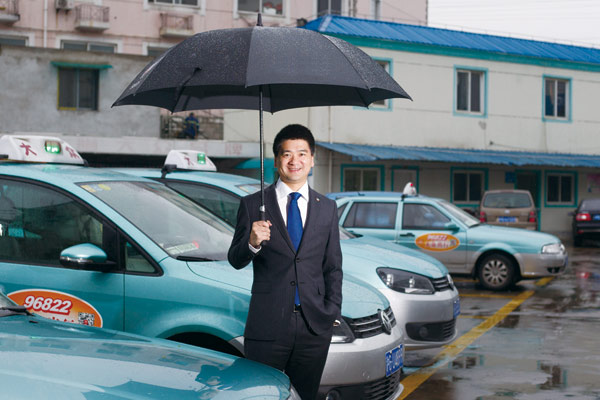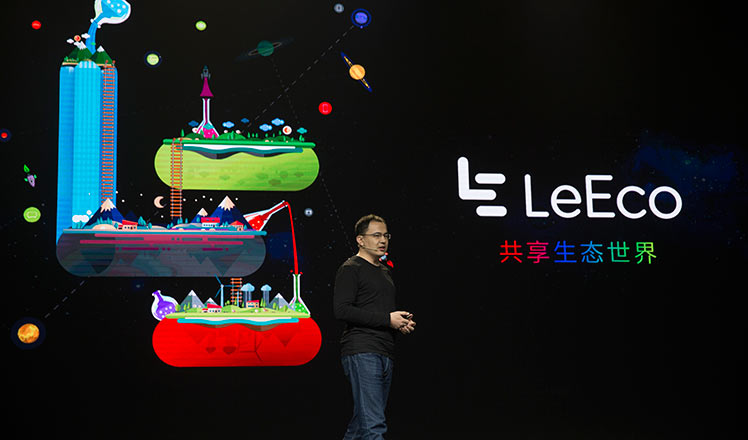Counting on professionalism
Updated: 2016-04-16 02:59
By Zhou Wenting in Shanghai(China Daily USA)
|
||||||||
 |
|
Yuan Dongliang, general manager of Dazhong Go Information Technology Co Ltd, believes that the private cars can never take over the taxi industry. gao erqiang / china daily |
Yuan Dongliang may work for Shanghai Dazhong Transportation Group, one of China's largest and most reputable taxi companies, but he's no stranger to getting a private car via one of the ride-hailing apps available in the country.
Having made numerous trips around the city in private cars, he believes that while such rides are often cheaper, many private drivers often display a clear lack of professionalism. One of the biggest problems is not knowing the roads well enough, which could then result in much inconvenience for customers.
"We are fundamentally different from the rest. We pay close attention to things such as customer complaints, accident rates, and whether the actual income of the drivers can support them. In contrast, ride-hailing platforms mainly focus on the number of new and active users," said Yuan, general manager of Dazhong Go Information Technology Co Ltd, a newly-established branch of Shanghai Dazhong Transportation Group.
Despite the drawbacks associated with hiring private cars, riding-hailing apps have enjoyed immense popularity. Throughout China, a total of 300 million passengers and 10 million drivers used ride-hailing apps in 2015, according to a report released in January by the media research center under Alibaba and CBN Data, a business data research center attached to financial news outlet China Business Network.
Last year, nearly 3,000 taxis out of the 51,100 in Shanghai were not in service, and in most cases it was because the drivers of these vehicles decided to work for ride-hailing platforms.
Competition in the ride-hailing industry intensified in 2013 when Didi Dache and Kuaidi Dache, backed by Internet giants Alibaba Group Holding Ltd and Tencent Holdings respectively, fought for market share by providing huge subsidies for passengers and drivers. San Francisco-based Uber Technologies Inc entered the fray shortly after and adopted the same strategy.
"We understand the dilemma our drivers face. While it is against the law to drive an unlicensed cab, they do earn more income," said Yuan.
"But subsidies are just a short-term tactic used to gain customers and will not be handed out forever. We believe the market will soon return to normal and now is just the beginning."
In response, Dazhong Transportation Group launched its own taxi-booking app in 2013. However, according to Yuan, the app did not achieve much success because of slow response times — it relied on human operators to dispatch taxis — and user interface problems.
In 2014, as part of efforts to lure customers back, the company provided complimentary WiFi in almost all its taxis.
Earlier this year on March 30, the company upped the ante and became the first traditional taxi business to launch a car-hailing app that is similar to its competitors, allowing users to hire cars with licensed drivers instead of regular taxis.
There are currently 500 licensed vehicles in this fleet and they vary from mid-range types such as a Volkswagen Passat to high-end ones like a Mercedez-Benz. These cars all carry car plates that start with "HuA.M". The starting price for Dazhong Go vehicles range from 18 to 23 yuan ($3.55). Another 700 of these cars are expected to hit the roads within three months.
"We were being overthrown. We knew that if we didn't make timely changes, we would eventually collapse," Yuan said.
"And that is why we decided to develop this new car-hailing platform. It is a legal way to help our drivers get more business and minimize driving around aimlessly," he added.
Yuan said that the decision to launch Dazhong Go was based on many factors. One of the biggest was how customers and drivers have become so accustomed to using such apps. Another factor is the intensifying clampdown on private drivers. From December 2015 to February this year, a total of 1,949 private car drivers in Shanghai were slapped with driving suspensions of between three and six months.
Elsewhere in Shenzhen, Guangdong province, the transportation authority shut down online ride-hailing services for hundreds of private drivers in March after they were found to either have taken drugs or had criminal records before they worked with those companies.
Yuan, who has been with the company for 16 years, was keen to stress on the professionalism of Dazhong Go's services. For instance, all drivers with Dazhong Go are required to complete a compulsory week-long training course before they are allowed on the roads.
The comprehensive training sessions cover relevant laws and regulations, etiquette and dress codes, safe driving techniques and helps familiarize drivers with the city's roads. Furthermore, every passenger in a Dazhong taxi is covered by accident insurance, up to a maximum of 1.5 million yuan.
"We'll give drivers instructions on how to drive safely during stormy or foggy days and on roads where motor vehicles and non-motor ones share a lane. We also teach our drivers how to handle road accidents where people are injured or where the vehicle is damaged, and how to manage difficult customers," Yuan said.
"The taxi industry is one that requires professionalism. All the competitors will eventually focus on management and service, without which there will be a chaotic market."
With regard to whether traditional taxis will ever become obsolete, Yuan said that it is impossible for private cars to take over the market. "After a large-scale exhibition or concert, would it be possible for everybody to hail a car via ride-hailing apps? How are they going to identify their ride when 5,000 vehicles flock to them?" he said.
zhouwenting@chinadaily.com.cn

 Top 10 Chinese brands that grow the fastest
Top 10 Chinese brands that grow the fastest
 Best Chinese paintings that reveal the beauty of spring
Best Chinese paintings that reveal the beauty of spring
 Millions visit charming forested area in East China
Millions visit charming forested area in East China
 PLA navy soldiers on patrol on Xisha Islands
PLA navy soldiers on patrol on Xisha Islands
 8 good books from London Book Fair you can't miss
8 good books from London Book Fair you can't miss
 Kobe Bryant's accomplishments by the numbers
Kobe Bryant's accomplishments by the numbers
 Top 10 Chinese cities with biggest surge in home prices
Top 10 Chinese cities with biggest surge in home prices
 Beijing Hutongs revived in watercolors
Beijing Hutongs revived in watercolors
Most Viewed
Editor's Picks

|

|

|

|

|

|
Today's Top News
Duke alumni visit Chinese Embassy
Marriott unlikely to top Anbang offer for Starwood: Observers
Chinese biopharma debuts on Nasdaq
What ends Jeb Bush's White House hopes
Investigation for Nicolas's campaign
Will US-ASEAN meeting be good for region?
Accentuate the positive in Sino-US relations
Dangerous games on peninsula will have no winner
US Weekly

|

|







